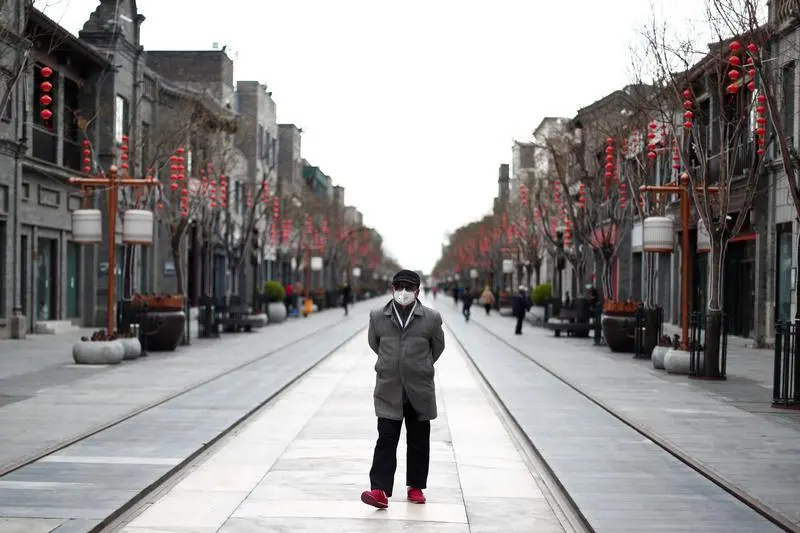PHOTO
BEIJING/SHANGHAI - Mainland China reported no new locally transmitted cases of coronavirus for the sixth time in eight days as Hubei province, where the virus was first detected, opened its borders.
Less encouragingly, imported cases rose, prompting Beijing and Shanghai to ramp up controls to prevent a resurgence of infections as the world's second largest economy gets back underway after the earlier lockdowns.
All 67 new cases reported by the end of Wednesday were imported, and all 47 reported the previous day were imported too, the National Health Commission said.
The total number of cases now stands at 81,285. The commission reported a total of 3,287 deaths at the end of Wednesday, up six from the previous day.
The number of new case is sharply down from the peak in February, and President Xi Jinping told World Health Organization director-general Tedros Adhanom that control of the virus continues to improve and China would do its best to keep offering support to other stricken nations.
Hubei, home to some 60 million people, reported no new cases on Wednesday and opened its borders.
Hundreds of people arriving in Beijing by rail from Hubei were either ordered to isolate themselves at home, or placed under centralised quarantine, according to Mao Jun, an official from Beijing West railway station.
In Xianning, a city in southeastern Hubei, public transport restarted and residents strolled the streets wearing masks.
One group of women sat outside a shuttered shop, playing with a pair of toddlers wearing masks.
"The lifting of the lockdown is both good and bad," said one of the women, who gave her name as Chen. "A lot of people can leave, but it also raises the risk. The situation in Hubei was so severe, and I've gotten used to staying at home for the last two months. It's safer that way."
The lockdown of Hubei's capital Wuhan, where the virus first appeared late last year, will be lifted on April 8, a milestone in China's war against the epidemic.
The fatality rate in Wuhan stood at about 5%, said Qiu Haibo, a medical expert on a panel led by the central government, according to the official People's Daily.
About 90% of all the imported cases are Chinese passport holders, Vice Foreign Minister Luo Zhaohui told a press conference, adding that 40% of those were overseas Chinese students returning amid rising infections abroad.
"We understand some overseas students are eager to come home...But under the current circumstances, by staying put, they can avoid being cross-infected in the hurried journey home or getting stuck mid-journey when the countries they transit in tighten border controls," Luo said.
Fearing a new wave of infections from imported cases, authorities have ramped up quarantine and screening measures in major cities including Beijing, where any travellers arriving from overseas must submit to centralised quarantine.
Shanghai will make every international traveller arriving from 1800 local time (1000 GMT) on Thursday go into quarantine for 14 days, the local government announced, having previously only required this for travellers who had visited any of 24 badly hit countries in the previous two weeks.
In the latest sign of a return to normal life, however, officials said the city's cinemas would reopen on Saturday.
Of the new cases reported on Wednesday, Shanghai had the most with 18, followed by Inner Mongolia on 12 and Guangdong on 11.
($1 = 7.0936 Chinese yuan)
(Reporting by Se Young Lee, David Stanway, Yew Lun Tian, Brenda Goh, Yawen Chen, Andrew Galbraith, Sophie Yu, Liangping Gao and Tom Daly; Editing by Michael Perry & Simon Cameron-Moore) ((vincentsy.lee@thomsonreuters.com; +86-10-56692108; follow me on Twitter @Rover829;))





















